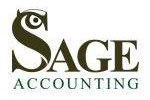Auto-enrolment thresholds frozen again
Each year, the government reviews the level of earnings at which employers must include their employees in statutory pension schemes. What’s the story for 2022/23?

All employers have to comply with auto-enrolment if they have any employees who meet the criteria (referred to as “workers”). There are a number of important thresholds that govern when employees are entitled to join the scheme. Two of the most important are the earnings trigger and the qualifying earnings band lower limit. The earnings trigger is the point at which an employer must auto-enrol an employee into a qualifying scheme. If the employee earns less than the trigger amount, they can request to be enrolled, and the employer must do so. If they earn less than the lower limit, they can request to be enrolled, but the employer has no obligation to make contributions. The lower limit has been frozen at £6,240 for 2022/23. This means that employees who pay no tax or NI may need to be enrolled if they request it.
The earnings trigger has been frozen at £10,000 for 2022/23. Of course, as the minimum wage rates have increased, this is a decrease in the trigger in real terms. As a result, it’s expected that an additional 17,000 workers will need to be auto-enrolled for 2022/23. There are hefty fines for not adhering to the auto-enrolment rules, so you'd be well advised to identify staff that are just below the trigger this year and prepare to bring them into a qualifying pension scheme.
Related Topics
-
Directors’ fees - can you escape PAYE?
You’ve been asked to join the board of a company in a purely advisory role. For tax and NI efficiency you want your fees to be paid to your own company. Does this arrangement fall foul of HMRC’s off-payroll rules?
-
P46 (car) deadline
-
Filing deadline for self-assessment tax returns

 This website uses both its own and third-party cookies to analyze our services and navigation on our website in order to improve its contents (analytical purposes: measure visits and sources of web traffic). The legal basis is the consent of the user, except in the case of basic cookies, which are essential to navigate this website.
This website uses both its own and third-party cookies to analyze our services and navigation on our website in order to improve its contents (analytical purposes: measure visits and sources of web traffic). The legal basis is the consent of the user, except in the case of basic cookies, which are essential to navigate this website.